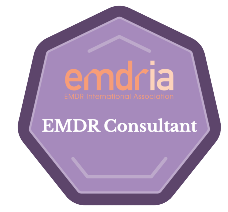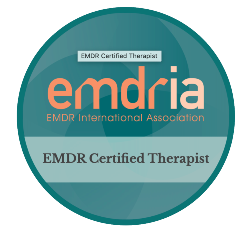How To Reach Out to a Therapist For Help: 5 Easy Steps (With Examples)
How To Initiate Contact with aTherapist Effectively
Deciding to reach out to a therapist can be a profound turning point for many people. But what comes next? Many people decide to visit a therapist, find a few with the right qualifications to help, and then struggle with what to say during that first contact.
Learning how to reach out to a therapist effectively can reduce the anxiety you may feel. Remember that you do not have to dive deep with a therapist immediately. Your goal in reaching out is to share basic details so you can decide if they are the right therapist to help you navigate your concerns.
Here, we will explain how to reach out to a therapist (with a template), plus tips for deciding between an email, a form, or a phone call.
What To Say When You Reach out to a Therapist for help for the First Time
Reaching out to a therapist can feel stressful. Still, it is an important step toward feeling at peace. This is an opportunity to express why you are interested in therapy, what type of therapist or therapy you are looking for, and ask questions about the therapists’ practice. Here is the key information to cover:
Introduce yourself and explain why you are looking for a therapist
This may seem simple, but this helps your potential therapist know how to address you. Include your name, contact information, and a brief description of your concerns and why you are seeking help. Your therapist is there to listen, and that begins with your first message.
Describe the issue for which you are seeking help
You will have an opportunity to dive deeper once therapy begins. In your initial outreach to a therapist, however, a simple sentence or two about what you would like to address in therapy is sufficient. Understanding your goals can help the therapist determine whether they are qualified to support you.
Some examples include:
- I struggle with anxiety and it’s affecting my daily life.
- I experienced a traumatic event and need help processing it.
- My child is having a hard time after moving schools and I would like for them to talk to someone about it.
When you reach out to a therapist, inquire about their approach
Reaching out to a therapist is also an opportunity to get more information about them. Determining which techniques they use, which philosophies they follow, and how they will guide you through each session can help you get a feel for what your relationship will be like. You can always ask more questions in a longer consultation if you are too nervous to ask upfront.
Therapist questions could include:
- What is a typical session with you like?
- How should I prepare for my initial session?
- What is my role as a parent during my child’s therapy sessions?
Ask about payment options
Different therapists charge different fees. At the same time, some take insurance while others do not. Asking about whether the therapist will accept your insurance or is private-pay only is an important part of determining whether they are the right fit..
You might ask questions to address payment such as:
- Do you take insurance?
- Do you provide a sliding scale rate?
- Will my insurance reimburse me if I pay out of pocket?
Request a consultation
A therapist can go more in-depth after you reach out in a scheduled consultation. A phone consultation is not a therapy session, but a 10-to-15-minute exploratory conversation.
Some therapists offer consultations, while others may not. At Greenwood Counseling Center, everyone who reaches out to us will get a phone consultation with the therapist with whom we have paired you.
Our therapists will generally use this time to ask questions to gain a better understanding of the concerns you’d like to address, give you an idea of their therapeutic approach, and discuss logistical details about cost and schedule. This is also a chance to ask any questions you have for the therapist.
Closing
Ask about the next steps — like scheduling the consultation — and indicate how they can reach you…and that’s it! You’re done!
The 2 Ways To Reach Out to a Therapist
The above tips can be used no matter how you contact a therapist. Many patients opt to contact potential therapists over the phone. However, since more therapists have websites, you can choose the option that makes you feel the most at ease.
A Phone Call
Therapists generally publish their phone numbers on their website, in directories, and on the business page that appears when you Google them. While it is common to feel uncomfortable on the phone, calling can help you get in touch with a therapist quickly.
What happens after you call can vary between practices. You will likely leave a voicemail or speak to a receptionist first. At Greenwood Counseling Center, our intake coordinator will either answer the phone or call you back the same day if they were unavailable when you called. They will ask about your concerns, why you are seeking help, and what you are looking for in a therapist.
Our intake coordinator will then pair you with a therapist on our team who is the best fit for you. This can take the stress of decision-making off your shoulders.
Submit a Form
Submitting a form can feel safer than a phone call. You can take time to gather your thoughts, and then review and revise the form before you send it. Most therapists will have a form on their website so you can contact them easily and confidentially.
Though some people worry a form will get lost, therapists take any communication with patients seriously. As long as it is during business hours, our team at Greenwood Counseling Center will reply to you the same day you reach out to us.
What to expect after you reach out
For many, reaching out to a therapist feels like the hardest part. In reality, it is only the beginning of your therapy journey, but usually after contacting someone, the work of doing the therapy is less intimidating.
What exactly happens after you contact a therapist depends on the practice. At ours, an intake coordinator will match you with one of our therapists. The therapist we match you with will then reach out for a deeper consultation to understand your needs and whether they can help. They will also discuss the cost and your availability.
If you both decide that they are the right therapist for you, they will schedule your first appointment. From there, you will start attending sessions and working toward feeling better.
Greenwood Counseling Center’s team of experts makes it easy to find the right fit
Finding the right therapist is an important part of your journey to feeling better. Our team at Greenwood Counseling Center represents a diverse set of philosophies and practices. You can reach out to us once, and we will help match you with one of the 11 clinicians on our team.





